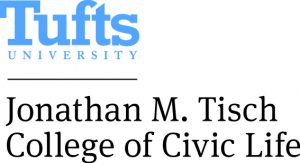Author Archives: Peter Levine
Race and racism
Background Race is a social construct. The racial categories that are widely used today have histories; they were not recognized before the late Middle Ages. They are closely connected to the history of colonialism and slavery. They arose with what … Continue reading
Equity analysis
Tufts’ Equity in America website allows you to choose demographic characteristics and social outcomes and see how they relate. By comparing such results, you can detect differences among groups and ask whether they manifest injustices. Choose several topics, run comparisons, … Continue reading
Jürgen Habermas
Jürgen Habermas (1929-) is a German philosopher and sociologist, often seen as the leader of the intellectual movement called the “Frankfurt School” in its second generation, when he helped to shift it away from Marxism. He is often presented as … Continue reading
Nonviolent methods
Gene Sharp (1928-2018) looked at thousands of specific examples of nonviolent episodes and campaigns and identified 198 methods. He categorized them under two major headings, “Nonviolent Protest and Persuasion” and “Noncooperation.” Under those major headings are many specific categories, such … Continue reading
Deliberative democracy
A deliberative democracy is a system in which people discuss before they make decisions. In order for the system to be democratic, people must have reasonably equal power over decisions, which usually means that they each have one vote (although … Continue reading
Elinor Ostrom
Elinor Ostrom (1933-2012) was a political scientist at Indiana University and a leader of the intellectual movement informally known as the Bloomington School. She won the Nobel Prize in Economics in 2009 and was a MacArthur “genius” Fellow and president … Continue reading
Commons game (online version)
This is a game that will play well for a large virtual group, and it is free. An in-person game is available elsewhere on this site. A useful list of other games, with reviews, is here. This game simulates: A pandemic … Continue reading
Commons game (in person version)
Lesson plans can be found all over the Internet for games that model the “Tragedy of the Commons” using goldfish crackers. This is a version used in the Introduction to Civic Studies course at Tufts. Materials: goldfish crackers (“fish”); plastic bowls (“lakes”); … Continue reading
Game theory
To model a human interaction as a game means understanding it as a set of discrete choices made by independent parties that yield results for all (cf. Johnson 2020). A game model does not presume that the players choose privately … Continue reading
The Power Cube
Political scientist John Gaventa and colleagues have developed the Power Cube as a tool for groups to use to analyze the situations that concern them. It breaks down the forms, spaces, and levels of power and the interactions among those. … Continue reading

